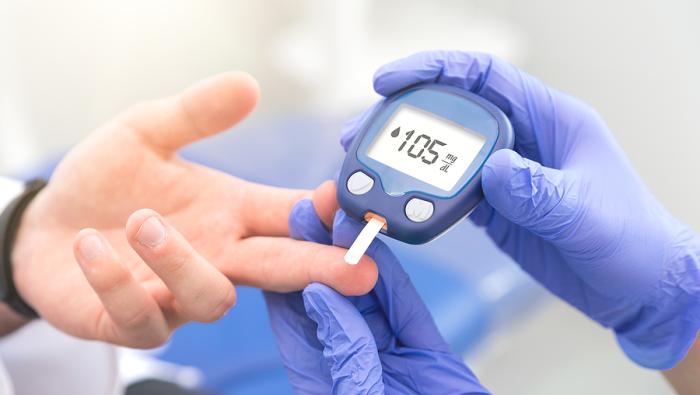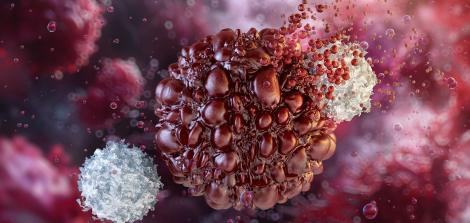Why do the residents of the Galilee suffer from diabetes more than anywhere else in Israel?

Here's a disturbing fact: In the Galilee region, there are twice as many diagnosed but unbalanced diabetes patients, compared to the rest of Israel, and as a result, there are far more complications, limb amputations, dialysis treatments and concomitant diseases. The question is of course, why? Dr. Sivan Spitzer, Deputy Director of the Diabetes SPHERE Project, who heads the Department of Population Health at the Faculty of Medicine and the Dangoor Center for Personalized Medicine at Bar-Ilan University, has been investigating this question for several years and claims that the such medical complications are related to health gaps that depend on the residential area and socioeconomic status.
Inequity in health care: The unmeasured index
Developments in medical science and the adoption of innovative technologies by health care systems are among the most prominent characteristics of Western societies. But when scientific knowledge and treatment recommendations are not implemented in the field, the implications of these developments are significantly reduced to the point of nullification. Dr. Spitzer examines all the social factors that lead to the formation of health gaps, and conducts studies and applied research projects that will make a difference in the field. The main project currently led by Dr. Spitzer to reduce the prevalence of diabetes in the Galilee is called the Russell Berry Galilee Diabetes SPHERE.
Dr. Spitzer, before we dive into the issue of diabetes, what are "health gaps" or “health disparities”?
"The research of health gaps distinguishes between measurable health disparities and health inequities, which result from social barriers such as being a member of an ethnic minority, economic challenges, etc. Together these two disparities prevent individuals from realizing their health potential. Therefore, when we examine the data relating to the health status of a particular person, we must investigate what prevents this person from realizing their health potential. Most of the disparities reflected in the data are due to social factors that affect human health. Thus, for example, an increase in obesity is not only the result of our diet but also our inability to exercise around our home because there are no sidewalks, for example."
This is interesting, because the first thing that comes to mind when we consider disparities isn’t physical infrastructures but rather health-care infrastructures, such as the number of doctors and pharmacies.
"Apparently, if we invested most of our resources in adding clinics and trained professional personnel in the geographical periphery of Israel, we would expect the equity of our health system to improve. However, studies by the World Health Organization indicate that accessibility and quality of health care services have a limited impact of only about 20% on health outcomes. In other words, investment in clinics and manpower will be an important and yet sufficient step. 50% of our health outcomes depend on the environment we live in.”
Galilee Diabetes SPHERE: Connecting municipalities to the health care system
In response to the acute problem of health disparities, Dr. Sivan Spitzer developed, planned, and established the Russell Berry Galilee Diabetes SPHERE - a project aimed at reducing diabetes morbidity in the Galilee. The project focuses on preventing the transition from pre-diabetes to diabetes, improving patients’ control of their diabetes, providing medical treatments to all patients, and conducting extensive concomitant research. Dr. Spitzer heads Diabetes SPHERE with Prof. Naim Shahadeh, one of Israel's leading endocrinologists and president of the Israeli Diabetes Association. The project was launched in November 2021.
The entire State of Israel is ranked fairly high in terms of people diagnosed with diabetes compared to OECD countries, so why the Galilee?
"The number of diabetics in the Galilee is the highest of all the geographical districts in Israel compared to the national average, and the numbers are soaring. In Israel, 10% of diabetes patients are unbalanced, which is a good figure compared to the rest of the world. However, in the north, in the Galilee region, on average 12% of patients are unbalanced, and there are communities in the Galilee where more than 20% of diabetics are unbalanced. This is a significant disparity. The imbalance leads to complications such as a sharp increase in the number of dialysis patients, and there are families in the Galilee where both parents need dialysis because of diabetes."
Isn't the national health care system the right place to make a difference?
“As I have already mentioned, the health care system has a relatively small share in the impact on human health, compared to environmental factors. Therefore, the SPHERE operates where people actually live, by working not only with the health care system but also with municipalities. So, for example, if we want to help a patient comply with their doctor's recommendations and exercise 150 minutes a week, we need to make sure they have a walking path where they live. Therefore, we are working with the municipality on aspects of urban planning that promote health. In addition to working with the municipality, we also work with health care systems. For example, to keep their diabetes balanced, patients must undergo annual tests: go to an ophthalmologist to see if their vision is normal, do blood and urine tests, check their kidney functions, undergo an orthopedic test if they suffer from a diabetic foot problem and more. Most of the time, the tests are not accessible to patients in one place, and it is not always possible to schedule all the tests for the same day."
And what can you contribute?
"The SPHERE employs a vehicle that makes medical treatments accessible by driving to patients and allowing them to do all their annual tests within about an hour in one place. In fact, the SPHERE has a mobile research platform that travels between communities in the Galilee. This platform offers a better understanding of the health characteristics of populations in the north and promotes a groundbreaking approach to reducing existing health disparities. The continuous work with municipalities allows the SPHERE staff to identify "hot spots" in neighborhoods with a particularly high incidence of diabetes and offer treatment on the spot. Another advantage of the SPHERE and its medical vehicle is the collaborative work with various sick funds, which maximizes access for diabetics from all sick funds in the north."
Recently we have heard about breakthroughs in the development of drugs for diabetes and obesity such as Wegovy and Ozempic. Is there any real news for public medicine?
"We all yearn for miracle drugs but it is still unknown what the long-term effects of taking these drugs over time are. It is important to note that these drugs, including the new drugs developed for diabetes, are good news not only in terms of weight loss but also for preventing the complications of the disease. However, we know today that there is a 30% gap between the center and the periphery in Israel when it comes to the provision of new drugs for diabetes and that not all patients receive these drugs even though they are entitled to receiving health basket services."
What is a possible explanation for this disparity?
"The reason is unfair dispensing of medical drugs. Sometimes the disparity is caused by patients not exercising their rights because they do not know what they are entitled to, but other times it results from the absence of positive control mechanisms that are supposed to examine whether these drugs were prescribed by family doctors for those who need them."
What do you mean by positive control?
"The health care system mainly relies on negative control. If a doctor prescribes a drug for a patient even though they are not entitled to it, the system will identify this situation as exceptional and will not approve the dispensing of the drug. But if the doctor needs to prescribe a drug for the patient and for some reason they do not prescribe it, in this situation there is no positive control system that checks why the drug was not dispensed."
As of today, say: Personalized social medicine
Most of the studies conducted at the Dangoor Center for Personalized Medicine deal with innovative technologies such as CRISPR-based RNA and DNA editing, or research of the microbiota. We wanted to find out which components of personalized medicine are included in public medicine.
Can public health systems be personalized?
"Absolutely. The discussion nowadays revolves around a fair health system, not an egalitarian health system. If the system is egalitarian it means that we all get the same thing, but we don't all need the same thing. The currently accepted approach in medicine is that people do not have the same requirements from the health system and therefore precision medicine in itself is insufficient and needs to be complemented by a personalized approach. And I would like to clarify and add: Medicine should be personalized and social."
What does personalized social medicine mean?
"Let's say I'm developing a medicine and in the clinical studies I have insufficient representation of populations that need this medicine the most, because I cannot access them for one reason or another. So in fact, I'm missing out on entire sectors of the population to whom I need to tailor the treatment. When we examine who is represented in clinical studies, it is usually not a population that suffers from health disparities, in places with high morbidity. This disparity should be narrowed as early as in the stage of drug development and later in the stage of drug implementation through positive control."
From a governmental and economic perspective, why is personalized and fair public health care important?
"If individuals in society have a fairer opportunity to realize their health potential, this has a direct impact on productivity, economic values and parameters of happiness. A healthier society is more productive, and its occupational productivity is high. The fact that there are more diabetics in the Galilee has economic consequences for occupational productivity and leads to higher expenses born by the health care system. A fair health system is also more economical."
Working with municipalities: during emergencies as well
What advantage does a university have in leading projects such as the SPHERE?
"The academy has the ability to harness partners and create an ecosystem between organizations that do not always work together. The faculty as an academic institution and I as a researcher familiar with implementation research know how to apply an interdisciplinary–multidisciplinary approach. My research partners in general, and the people involved in the SPHERE project in particular, constitute a multi-professional team comprising local government experts, doctors, health promotion experts, urban planners, economists and more. SPHERE currently work with 17 different municipalities and maintains collaborations with all sick funds and hospitals in the Galilee. Sick fund representatives are part of the SPHERE leading team and we work together to implement interventions across different systems – not just focusing on a single sick fund – but rather on an entire community, in order to make a difference."
What other collaborations do you have?
"SPHERE is leading the implementation of Government Decision 550 to reduce health disparities in the Arab society and is involved in a joint project with the Ministry of Health. In addition, I am a member of the Novo Nordisk Foundation Task Force for Cardiometabolic Diseases, and I am involved in other collaborations in Denmark and the United States.”
It is impossible not to consider the current state of emergency in the country and the front line in the Galilee, which is under fire from Lebanon. How does this situation affect your work with municipalities?
"When working with municipalities in the socio-geographical periphery, which are the weakest in Israel, the disparities become even greater during an emergency. The municipalities are responsible for maintaining an emergency health file, which requires them to decide which infrastructures will be accessible to the population. In terms of those populations’ health, they need to know which clinics are open, which pharmacies are open, what inventory of medicines is available, and which neighborhoods have people with complex health care needs that need support. But given the absence of an existing infrastructure, most municipalities do not have such information to enable optimal management of health care needs during emergencies. Therefore, we have built a platform for the municipalities we work with so that they can manage that health file during emergencies as best as possible. Medical students from the Bar-Ilan Faculty, together with the SPHERE team, have assisted municipalities in collecting and entering all the necessary information into the platform. Today, for the first time, municipalities have all the information needed to make decisions during emergencies for the benefit of their residents’ health. We believe that it is our duty to work with municipalities during emergencies as well, not just during routine times."
Last Updated Date : 12/11/2024








